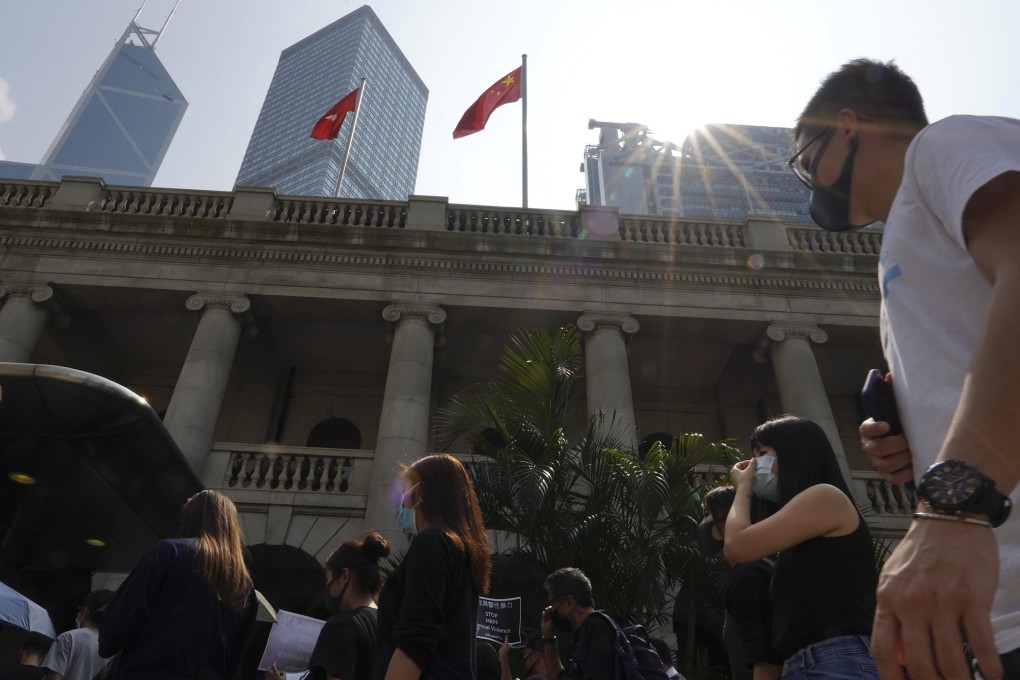How Beijing plans to use powers contained in Basic Law to tighten control over Hong Kong
- Statements issued after Communist Party gathering stress importance of ‘one country, two systems’ but suggest closer focus on security and national sovereignty
- Appointments of senior officials likely to be subject to more intense scrutiny from the central government in future

Beijing’s statements after a closed-door meeting of the Communist Party’s elite indicate that it will move to tighten control over Hong Kong and Macau, particularly when it comes to national security issues and the nomination of principal officers.
But it made clear that the “one country, two systems” principle, which guarantees the two cities a wide range of freedoms, remains a core national policy, suggesting that this closer supervision will come through the use of the central government’s powers enshrined in the Basic Law – which Beijing has only used sporadically until now.
It has said it will strengthen the relevant laws, step up patriotic education and, most intriguingly, it said Beijing would “enhance the system and mechanism over the appointment of chief executive and principal officials”.
With the city’s social unrest showing no signs of ending, Hong Kong was high on the agenda when the ruling Communist Party elite gathered in Beijing to discuss important national issues and policy directions behind closed doors.

In both the communique issued to the public and at Friday’s news conference that followed the meeting, or plenum, considerable attention was devoted to Hong Kong.